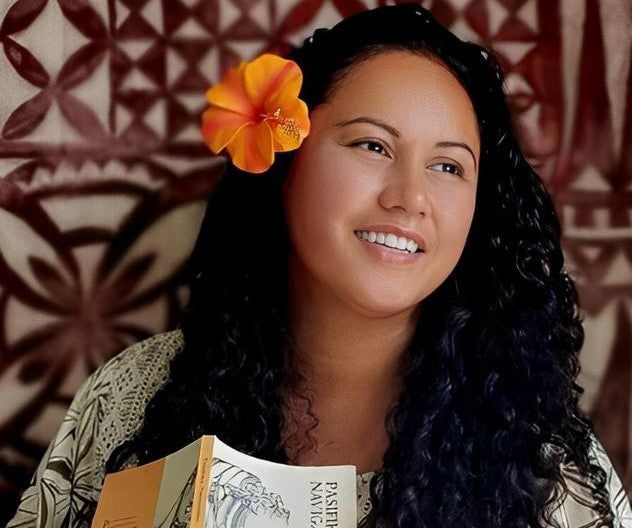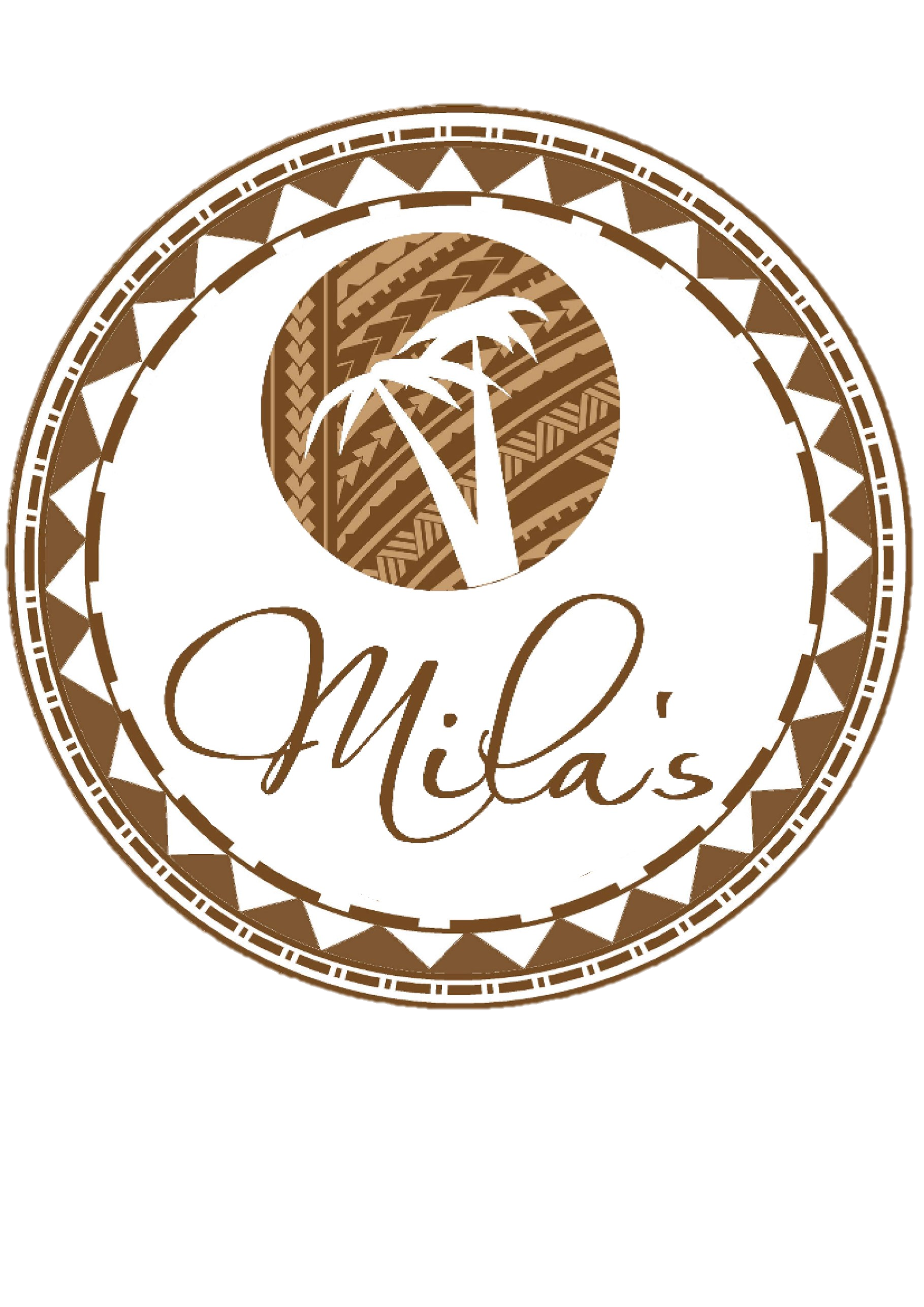
Dahlia Malaeulu, Mila's Books
Dahlia Malaeulu is an award-winning author and publisher of Mila’s Books, the only all Pasifika publishing company of children's books in the world. A proud Samoan New Zealander who has connections to the villages of Sinamoga, Vaivase tai, Faleatiu, Fagaloa and Aleisa in Sāmoa, Dahlia is passionate about the power of Pasifika stories. She is also a strong advocate for creating culturally safe and supported pathways for Pasifika authors and publishers in Aotearoa. Dahlia was the recipient of the NZ Emerging Publisher of the Year in 2023 and here she shares some advice for new and emerging Pasifika storytellers and Publishers.
Part 1: The Do’s
Across the vast moana of literature, there's a treasure trove of Pacific stories waiting to be unearthed which really excites us at Mila’s Books. For us our mission is clear: to produce stories that empower our tamaiti and Pacific peoples to feel seen, heard, and valued as who they are. This is why it has and will always be more than books for us; it's about preserving our Pacific heritage, celebrating our languages and identity, and inspiring future generations of Pacific storytellers.
As a result of the work we do we continuously receive queries regarding writing and publishing, and as part of our life long duty to tautua our people embarking on this book journey here are some valuable lessons we've learnt along our book journey to support your own writing and publishing dreams:
1. Purpose - What is your purpose for writing or publishing?
Our purpose is our compass at Mila’s Books. For us it's about cultural preservation, representation, and empowerment. Your own 'why' will dictate your book journey and the connections you make along the way. Whether it's just to create a keepsake, to share your cultural heritage, advocate for social change, or simply entertain, embracing your purpose will anchor your goals, guide you and give greater meaning to your book journey overall.
2. Processes - What do you know and what don’t you know? Are you willing to learn?
Navigating the world of publishing can feel daunting but knowledge is the beginning of discovering your book power. Understanding the different avenues available—whether it's independent publishing or traditional publishing—empowers you to choose the path that aligns with your purpose and goals. This applies to people who are wanting to become published writers also, just think about the following to start: What are your timeframes and your book budget? Are these both realistic? Is it just an idea or have you written a draft manuscript? Have you had your manuscript professionally edited and does it include feedback? If you are writing in a Pacific language, have you had your writing peer reviewed? Who is your target audience and how will they be able to access your book?
We get so many questions that can be answered online and even demonstrated step-by-step on YouTube. So be prepared to research and develop your knowledge around the processes of writing for publication or creating a book, from conception seeking feedback, editing, formatting, finding the right illustrators, to translations and cultural advisors. Each step is integral to bringing a high quality version of your vision to life.
3. People - What connections do you already have or need to make?
At Mila's Books, people are at the heart of everything we do. Building connections with your audience, retailers, distributors, printers, and even media organisations is key to amplifying your message and reaching a wider audience especially when creating books for the trade market (a.k.a books sold to the general public). As Pacific people, vā is nothing new to us so use this to tap into the networks you already have and remember, your readers are not just consumers; they're your community, your supporters, and your advocates.
4. Publishing & Promotion - What will you do when your story is published?
The publishing industry is vast and varied, but it's essential to understand where your audience is and how to reach them if your plan is for your book to be published for trade. Promotion is paramount; if you don't promote your book, no one will know it exists. As Pasifika this does not always come naturally for us but remember your purpose? If your reason for writing or publishing is strong enough you will learn to embrace social media and other digital platforms, you may also consider making your book available as an ebook to widen your reach for instance.
5. Persistence & Practice - What now? … Keep learning and keep going!
Book success typically doesn't happen overnight, but with persistence and practice, anything is possible. I have written over forty titles/articles which have gone to publication, each one a testament to my commitment to our Mila's Books purpose and mission.
Embrace the journey, stay open to opportunities, and never stop learning because book wins are not really found in monetary gain (profits mostly go back into the production of new books for many publishing houses anyway) but in showing what's possible for our stories and the impact they will have on future generations of Pacific peoples to connect, talanoa and heal. When we and our stories win, we all win.
Part 2: The Don’ts
1. Always aim for quality
Producing a high-quality book is no small feat; it requires a harmonious blend of creativity, craftsmanship, and commitment. It's not just about putting words on paper, and at each stage of book production there is a compulsory level of critical analysis, ongoing feedback and cross-checking at each stage of book production.
Quality also means spending money and many people are shocked when we share with them that one quality picture book for example can easily cost over ten thousand dollars #truestory. However, we have learnt not all books meet the mark of quality for a number of reasons:
- Lack of cultural sensitivity or authenticity, especially in books representing Pasifika or minority groups.
- Inadequate research or fact-checking, leading to inaccuracies or misrepresentations of Pasifika or minority groups.
- Poor editing, including grammatical errors, typos, and inconsistencies.
- Low-quality illustrations or dated design elements that detract from the overall aesthetic.
- Subpar printing or production quality, such as blurry images or flimsy paper.
- Lack of originality or creativity, resulting in derivative or clichéd storytelling.
- Insufficient attention to detail in formatting, leading to readability issues or awkward layouts.
- Neglecting to consider the needs and preferences of the target audience, resulting in a disconnect between the book and its intended readership.
In a world inundated with books vying for attention, it's essential to prioritise quality in every aspect of the publishing process no matter the budget. Mistakes happen (which hold the greatest lessons) but by holding ourselves to high standards and striving for excellence in our work, we not only elevate the literary landscape as Pasifika storytellers but also honour the mana of our stories that we share with the world.
2. Understanding the busy world of book publishing
Publishers play a vital role in bringing stories to life and like us at Mila’s Books, are extremely busy juggling book projects and client meetings, navigating deadlines and promotional commitments, monitoring book budgets, sales and book events as well as constantly trying to manage overflowing emails. Here are some tips for new writers who are who are seeking to collaborate with a publisher:
- Publishers appreciate when writers take the necessary time to research their publishing house and tailor their queries accordingly. Remember time is very precious in the publishing world so the more you can prepare through research, and there is plenty of step-by-step information online, the better. At Mila’s Books our goal in the future is to hold online seminars or in person workshops for Pacific peoples wanting to become published writers or independent publishers because we understand that collaboration and culturally safe spaces are key for us.
- Make sure to check whether the publishers are receiving submissions and abide by their guidelines on this. No matter how good your writing is, the publishing house may not have the time or staffing capacity to look at your writing especially if you disregard submission deadlines. For Mila’s Books we currently do not accept submissions due to this process not being culturally safe for our people since many are new writers. We instead focus on working alongside our writers so that they can better understand the publishing process with the aim of preparing them to write or publish more stories for themselves in the future.
- While many publishers are happy to offer advice and support to aspiring writers, this becomes problematic when individuals expect publishers to provide extensive guidance or mentorship without any consideration for the publisher's time or expertise. In a perfect book world we would have teams (and book budgets) big enough to be able to produce and release Pacific stories each week. It is a fact that publishers literally cannot afford to help everyone #timeistupe and is why we established the Mila’s Books Tusitala Mentoring Group which supports new or emerging Pacific writers in becoming published writers each year.
- Receiving constructive feedback is an essential part of the writing and publishing process. If new writers or publishers are resistant to feedback or unwilling to consider revisions to improve their work then aiming to work with a publisher may not be your ipu tī. A collaborative workflow and connection is what we aim for when we work with different writers at Mila’s Books and is how we have published the writing of over ninety first-time Pacific writers. Learning and listening is key when working with any publisher and vice versa.
Instagram: @milasdm
Facebook: @MilasBooks
